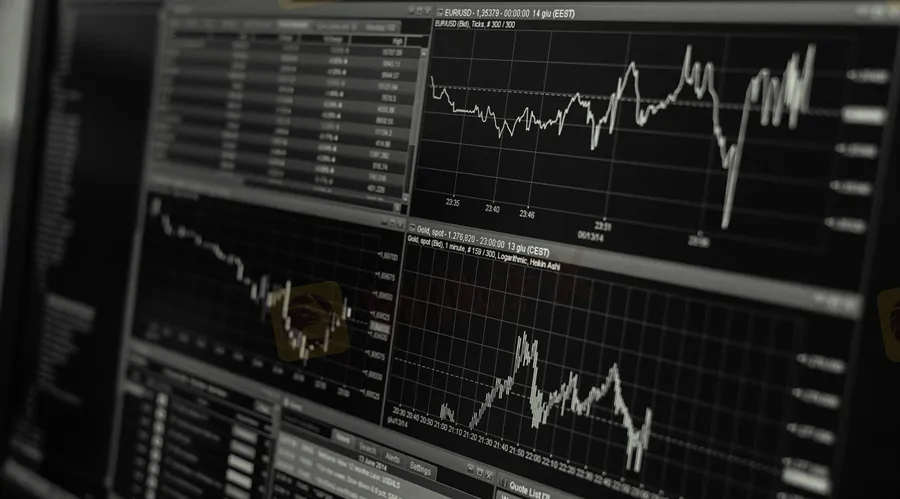简体中文
繁體中文
English
Pусский
日本語
ภาษาไทย
Tiếng Việt
Bahasa Indonesia
Español
हिन्दी
Filippiiniläinen
Français
Deutsch
Português
Türkçe
한국어
العربية
Global Crypto Funds See Record Gains in 2021
Abstract:BarclayHedge releases 2021 data showing FX and crypto funds aggregates.

Crypto funds achieved steep gains, while FX funds lagged behind.
On January 14, BarclayHedge, a division of Backstop Solutions Group, released a report showing that the global cryptocurrency funds achieved steep gains last year. This was attributed to the surge of crypto prices, led by Bitcoin and Ether amid strong institutional interest and greater acceptance from regulators across the world. The data showed results for about 39 funds, or less than 50% of the digital asset management firms, which BarclayHedge tracked. The data posted by the company indicated that funds focused on Bitcoin and other crypto assets have returned 138.1% for the year 2021. That followed record gains of 173% made in 2020, as cryptocurrency funds during that year benefited from extreme volatility that the Covid-19 pandemic caused across financial markets.
In 2021, Bitcoin gained 60% as it surged to a record high of $69,000 in November, while Ethersoared around 400%. However, in December last year, crypto funds had a bad month, as they lost about 11% while Bitcoin and Ether plunged as well. In December, Bitcoin declined 19% from an all-time high close of $69,000 when it hit in early November and Ether dropped 20%.
Ben Crawford, head of research at BarclayHedge, talked about the development and said: “Crypto was the only sub-sector that didn‘t make money in December, as many of the industry’s headline assets suffered whiplash from a sharp price downturn.”
Meanwhile, foreign exchange funds saw a gain of 2.2% last year, based on 40 FX programs tracked by BarclayHedge. The 2021 gain for forex funds followed a 4% increase in 2020. In December last year, FX funds saw a 0.23% return. Returns were low in 2021 as global central banks kept interest rates low and as a result depressed market volatility.
Asset Managers Are Looking to Offer Crypto Funds
The report by BarclayHedge shows that cryptocurrency funds are able to produce returns that beat foreign currency funds. The overall crypto funds industry has seen rapid growth. While the number of cryptocurrency funds has increased, rising crypto prices and increasing public awareness have contributed to the gains of such funds last year. Positive changes in the assets are as a result of the launching of new crypto funds, new inflows into existing funds, and changes in the value of portfolio assets.
The popularity of cryptocurrency funds has sparked increasing interest from investment asset management firms. Asset managers such as State Street Global Advisors, UBS, Invesco, BlackRock, Fidelity, among others are looking into the potential of providing exposure to crypto assets. As of November 2021, assets in European exchange-traded products and mutual funds with crypto exposure topped $11.8 billion. This shows the potential appeal of such products for asset managers. Clients are not only asking about cryptocurrencies
Cryptocurrencies
By using cryptography, virtual currencies, known as cryptocur...Read this Term
, but also crypto products. Many financial institutions are exploring the potential benefits of such assets. In May last year, Invesco was investigating digital assets exposure for ETPs. Such efforts came as a result of European ETPs and funds giving crypto exposure generated an average return of 461.7% last year. However, while asset managers are seeking to launch more crypto products as part of the ‘gimmick’ trend, many hurdles involved in entering the crypto space still remain.

Disclaimer:
The views in this article only represent the author's personal views, and do not constitute investment advice on this platform. This platform does not guarantee the accuracy, completeness and timeliness of the information in the article, and will not be liable for any loss caused by the use of or reliance on the information in the article.
Read more
JustMarkets Review 2025: Live & Demo Accounts, Withdrawal to Explore
Established in 2012, JustMarkets (Formerly JustForex) is an online forex broker based in Cyprus and serves clients in over 160 countries. Featuring a low entry barrier, a 50% deposit bonus, and robust trading platforms -MT4 and MT5, JustMarkets has gained great popularity among retail investors in recent years. JustMarkets allows traders to trade over 260 CFD-based instruments, which is not an extensive range, yet on leverage up to 3000:1 to increase trading flexibility. To enhance the trading experience, both MT4 and MT5 are provided, along with JustMarkets Trading App, MetaTrader Mobile App, and MetaTrader WebTerminal. JustMarkets offers a 50% deposit bonus to boost traders' confidence. Opening an account is a fully online process, typically completed within one day.

WikiEXPO Becomes Partner of the Liberland Government
Wiki Finance EXPO is honored to announce a partnership with the Free Republic of Liberland. This collaboration will further advance global dialogue on financial innovation and decentralized technology, bringing cutting-edge insights and industry opportunities to participants.

BOJ to Announce Policy Decision This Week, Market Bets on a Rate Hike
The yen strengthens past 156 as markets anticipate a rate hike from the Bank of Japan this week.

WikiEXPO 2025 is set to embark on a new global tour
WikiEXPO 2025 is set to embark on a new global tour First station - Hong Kong! Are you ready?
WikiFX Broker
Latest News
Why Do You Keep Blowing Accounts or Making Losses?
eToro Adds ADX Stocks to Platform for Global Investors
B2BROKER Launches PrimeXM XCore Support for Brokers
Germany's Election: Immigration, Economy & Political Tensions Take Centre Stage
WikiFX Review: Is IVY Markets Reliable?
Checkout FCA Warning List of 21 FEB 2025
Google Bitcoin Integration: A Game-Changer or Risky Move?
IG 2025 Most Comprehensive Review
Why Should Women Join FX Market?
ED Exposed US Warned Crypto Scam ”Bit Connect”
Currency Calculator






